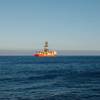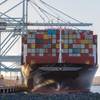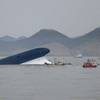Antarctica’s Ross Sea Gets Protection
The Commission on the Conservation of Antarctic Marine Living Resources (CCAMLR) today agreed to set aside more than 1 million square kilometres of the Ross Sea in recognition of its incredible scientific and biodiversity values.
CCAMLR committed to creating a system of marine protected areas in the Southern Ocean in 2009 and has been discussing the creation of MPAs in the Ross Sea and East Antarctica for several years. Claire Christian, director of the Antarctic and Southern Ocean Coalition, said “ASOC is thrilled to see that CCAMLR has protected 1.55 million square km of the Ross Sea, 1.12 million square kilometers of which will be fully protected with the remaining area designated as special research zones. We are disappointed that CCAMLR could not agree to permanently protect the Ross Sea, however, we are confident that CCAMLR will recognize the value of protecting this area and will renew it in 35 years.”
The Ross Sea has been identified by scientists as being one of the world’s most intact large marine ecosystems. This makes it an ideal natural laboratory for scientists to understand ecosystem function.
The Ross Sea is home to 38% of the world’s Adélie penguins, 26% of Emperor penguins, more than 30% of Antarctic petrels, 6% of Antarctic minke whales, and perhaps more than 30% of “Ross Sea” killer whales. Moreover, it has the richest diversity of fishes in the high latitude Southern Ocean, including seven species found nowhere else. ASOC hopes that additional, permanent protections will be added for other areas in the Southern Ocean including East Antarctica, the Weddell Sea, and the Antarctic Peninsula in the coming years.
ASOC was glad that CCAMLR also progressed their work toward fully regulating the krill fishery in the Southern Ocean. “Renewing Conservation Measure 51-07 ensures that krill fishing is not concentrated in a small area and that the catch limit is at a precautionary level. Concentrated fishing can put added pressure on penguin and seal colonies, especially during the breeding season. The renewal of this measure will protect penguins, seals and other krill predators from the risk of starvation,” said Rodolfo Werner, senior adviser for ASOC.
CCAMLR also introduced a risk assessment process that will enhance their capacity to respond to the impacts of fishing and climatic changes on krill-reliant predators.
CCAMLR took small but important steps towards addressing climate change during the meeting. There was agreement to develop a climate change workplan to address major scientific questions and fill information gaps. An intersessional discussion among CCAMLR Members on enhancing consideration of climate change impacts will also continue. However, ASOC urged CCAMLR to move more quickly to incorporate climate change and ocean acidification into its decisionmaking process and management rules. “Climate change is having a profound impact across Antarctica putting habitats and biodiversity under increasing risk through ice loss, ocean warming and acidification. These changes will also have direct impacts on the climate worldwide and need to be urgently addressed by CCAMLR, “ said Chris Johnson, a marine scientist with WWF, an ASOC member organization.













